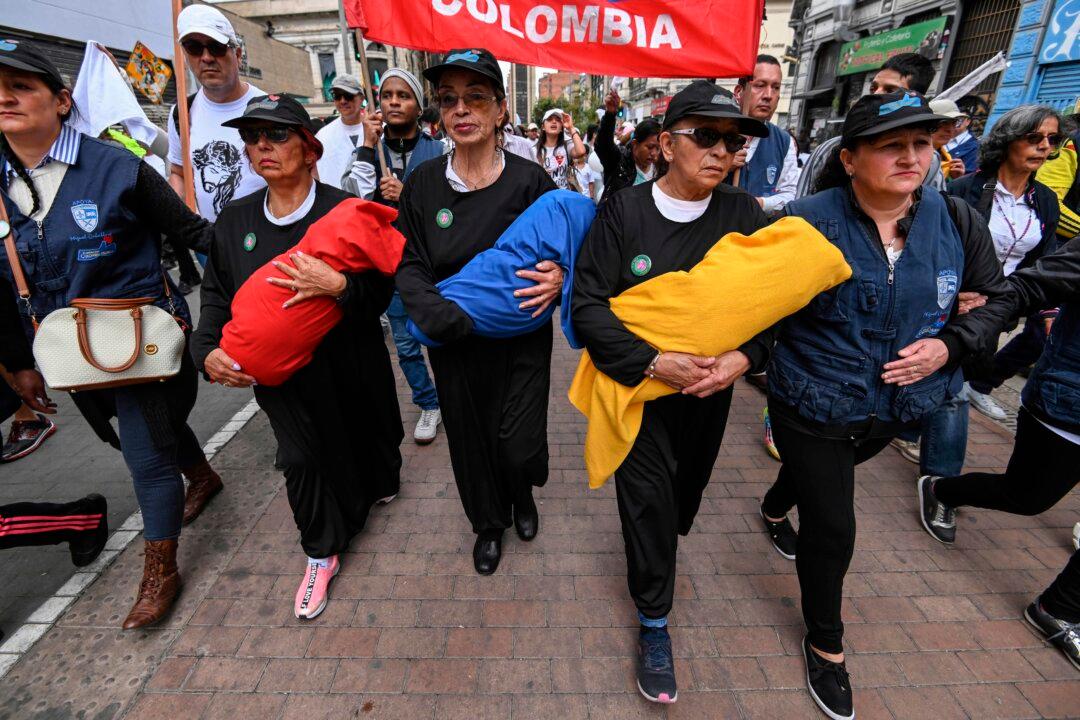BOGOTA, Colombia—Under the slogan “Colombia united against terrorism,” thousands of people marched in the country’s main cities Jan. 20 to reject violence, three days after a car bomb attack attributed by the government to the National Liberation Army (ELN) rebel group left 21 dead and 68 injured.
With t-shirts, balloons, and white flags, the protesters walked down an avenue to gather at the historic Plaza de Bolívar, in downtown Bogotá, to honor the victims with a minute of silence. Similar marches occurred in the cities of Medellín, Cali, and Barranquilla.





